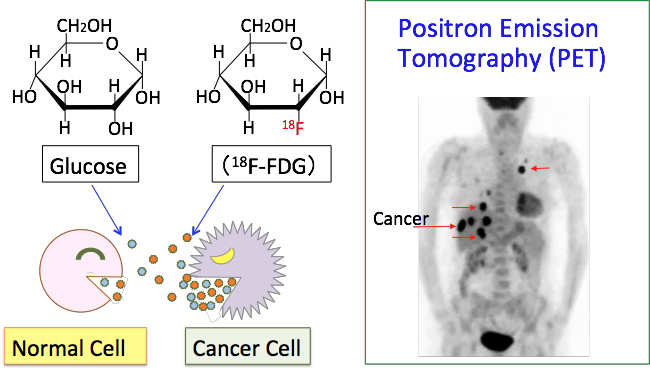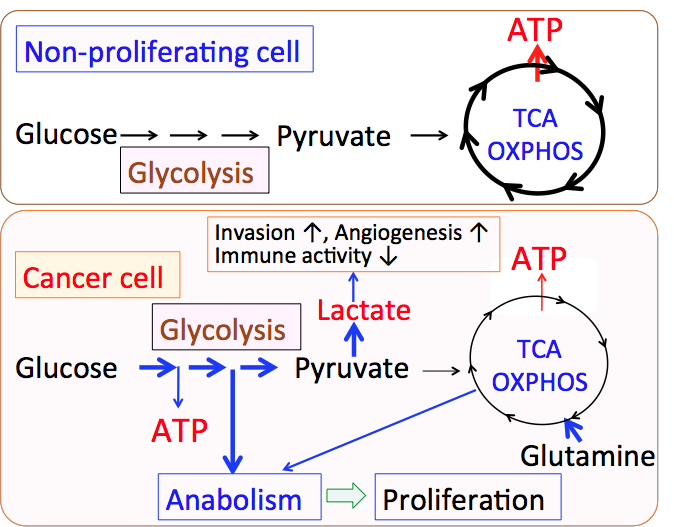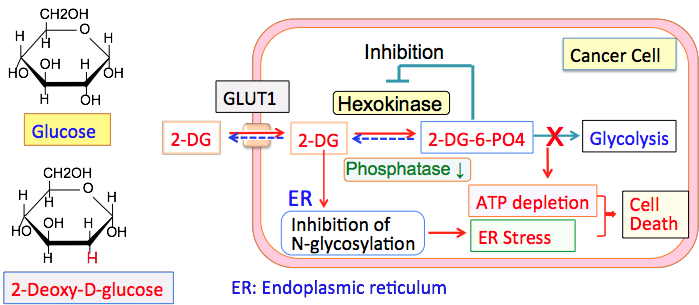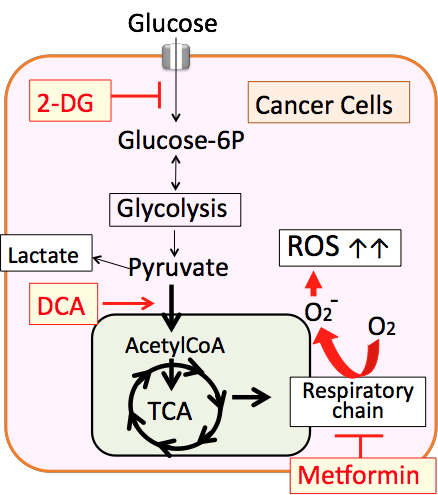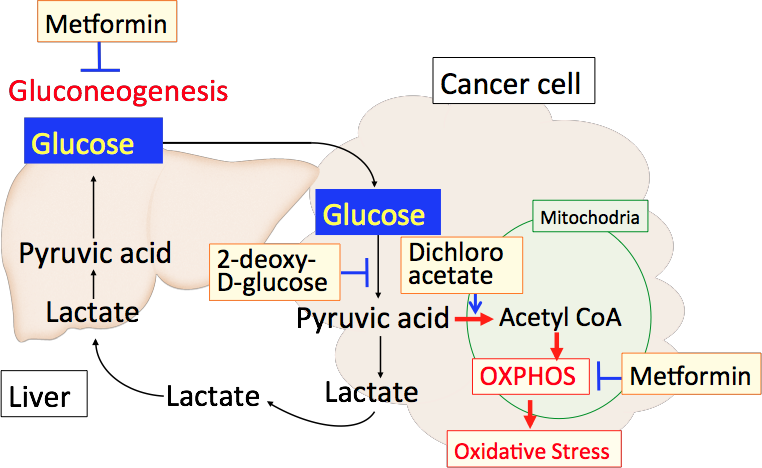Anti-cancer Effects of 2-Deoxy-D-Glucose, Metformin and Dichloroacetate
● Cancer cells consume more quantity of glucose than normal cells
Cancer cells are characterized by altered glucose metabolism known as the Warburg effect in which aerobic glycolysis is increased. Glucose is converted to lactate even under sufficient oxygen tension. Interfering with this process may be a potential effective strategy to cause cancer cell death because these cells rely heavily on glucose metabolism for survival and proliferation.
● 2-Deoxy-D-glucose is a glucose analog
2-Deoxy-D-glucose (2DG), a glucose analog, targets glucose metabolism to deplete cancer cells of energy. In addition, 2DG increases oxidative stress, inhibits N-linked glycosylation, and induces autophagy.
It can efficiently slow cell growth and potently facilitate apoptosis in specific cancer cells. Although 2DG itself has limited therapeutic effect in many types of cancers, it may be combined with other therapeutic agents or radiotherapy to exhibit a synergistic anticancer effect.
● Synergistic anti-cancer effects of 2-deoxy-D-glucose and metformin
Metformin, an anti-diabetic agent, blocks mitochondria oxidative phosphorylation complex I and reduces ATP production in mitochondria. Metformin sensitizes cancer cells to chemotherapy and radiation.
2-deoxy-D-glucose inhibits glycolysis and metformin inhibits mitochondria oxidative phosphorylation. Thus combination of 2-deoxy-D-glucose and metformin synergistically reduce ATP production and induce apoptotic cell death in cancer dells.
Several studies demonstrated that 2DG in combination with metformin resulted in significantly reduced viability compared with the single agent treatments.
● Dichloroacetate enhances apoptotic cell death via oxidative damage in metformin-treated cancer cells
Metformin targets complex I of the electron transport chain leading to an accumulation of reactive oxygen species that eventually lead to cell death.
Inhibition of complex I leads to lactate production, a metabolic byproduct already highly produced by reprogrammed cancer cells and associated with a poor prognosis.
Dichloroacetate (DCA) is a well-established drug used in the treatment of lactic acidosis which functions through inhibition of pyruvate dehydrogenase kinase (PDK) promoting mitochondrial metabolism.
Metformin-induced oxidative damage is enhanced by Dichloroacetate through PDK1 inhibition which also diminishes metformin promoted lactate production.
Co-treatment of cancer cells with Dichloroacetate and metformin synergistically induce cell death (apoptosis) involving oxidative damage with simultaneous attenuation of metformin promoted lactate production.
● Dosing regimen
2-Deoxy-D-glucose: 40 to 60mg/kg/day, dissolve in water and take it before going to bed
Metformin: 1000 to 1500mg/day, divide 2 to 3 times after meal
Sodium dicloroacetate: 10 to 15 mg/kg/day, dissolve in water and take it after breakfast
Take vitamin B1 (150mg/day) to prevent side effect of DCA
Prescription of medicine: Ginza Tokyo Clinic (e-mail: info@f-gtc.or.jp)
